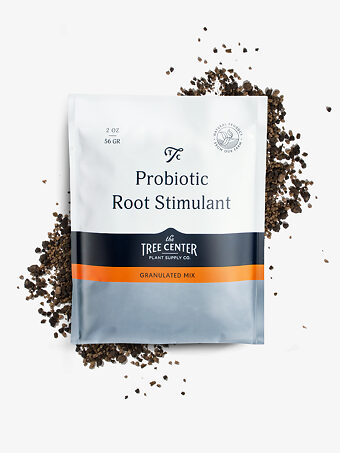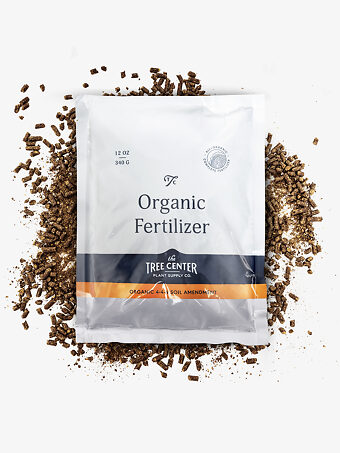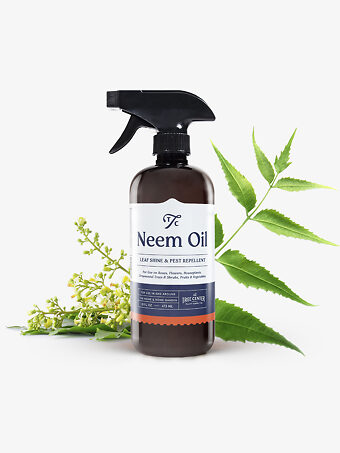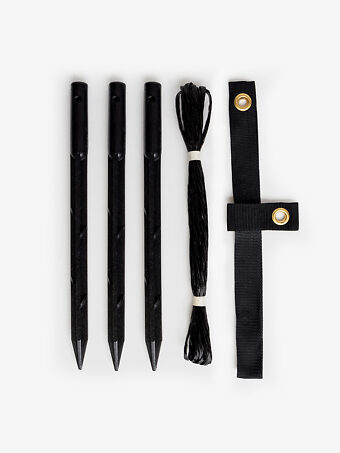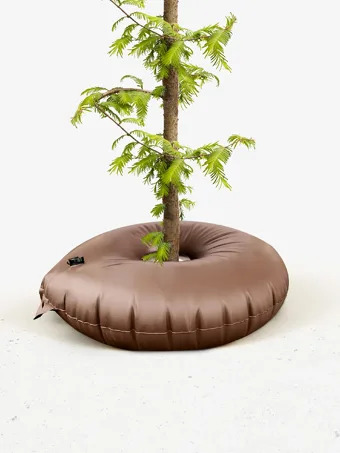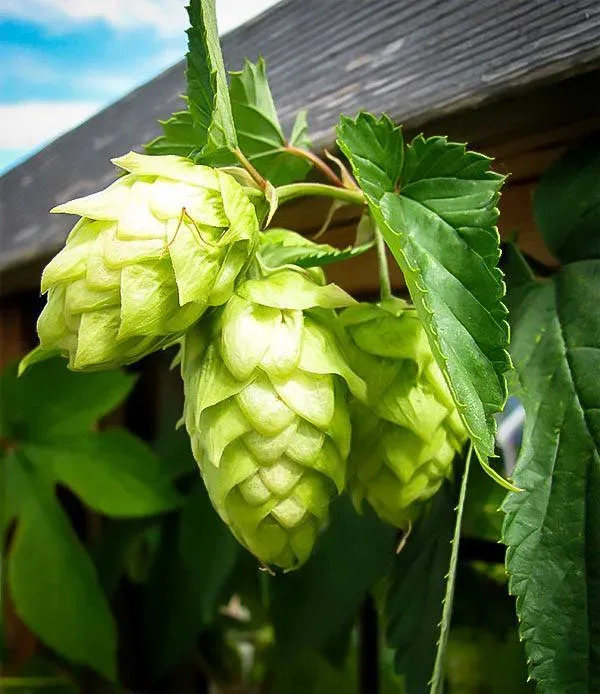
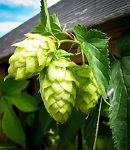
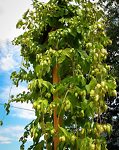

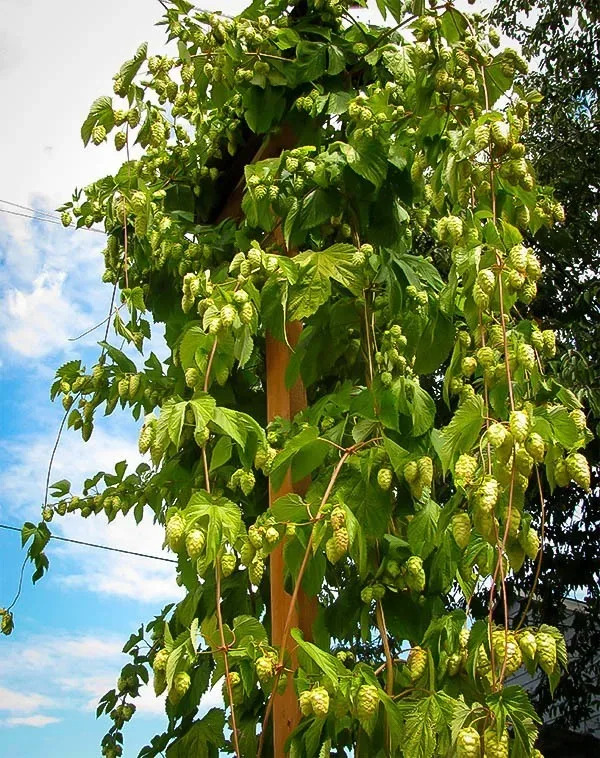
Centennial Hops Plant
Humulus lupulus 'Centennial'View more from Hops Plants
Centennial Hops Plant
Humulus lupulus 'Centennial'
this item doesn’t ship to
For a premium-grade hop to brew your own beer, or an attractive and interesting plant to cover an ugly fence or create a screen, the Centennial Hops Plant is a great choice, especially for northern gardeners, because this great plant is hardy to zone 3. Hops are trouble-free plants that grow quickly and cover any structure in beautiful green foliage to create a rich, green backdrop for your garden. As well as being great for beer, Centennial Hops are great for casting shade beneath a pergola or arbor structure, making your garden a cool and refreshing place on the hottest days.
- Great twining plant for covering fences and trellis
- Attractive foliage and unique flower clusters
- Specially developed for home brewing
- Make your own sleep pillows
- Beautiful on a pergola for summer shade and winter sun
Centennial Hops grow in any soil, they are usually pest and disease free and the unusual clusters of papery pods that are the actual hops are a great conversation piece in any garden. Serious beer-makers love Centennial Hops because their unique combination of bitterness and flavor means you only need one variety to make perfect beer.

Botanical Name:
Humulus lupulus 'Centennial'
Mature Width:
10-12 ft
Mature Height:
12-15 ft
Grows Well In:
Zones 4-9
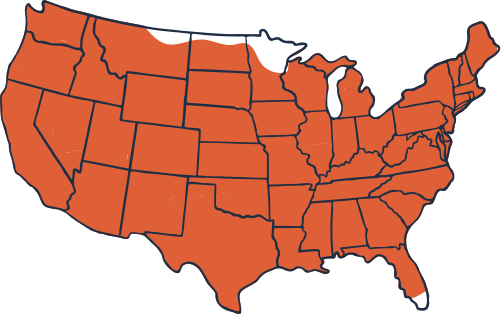
Sun Needs:
Full Sun, Partial Sun
Water Needs:
Moderate
Growth Rate:
Medium
Flower Color:
Green
Flowering Season:
Summer
